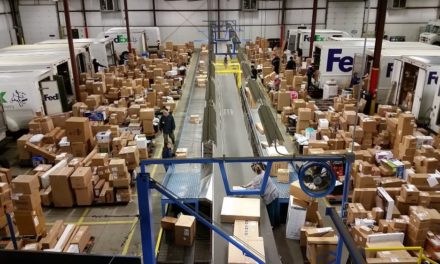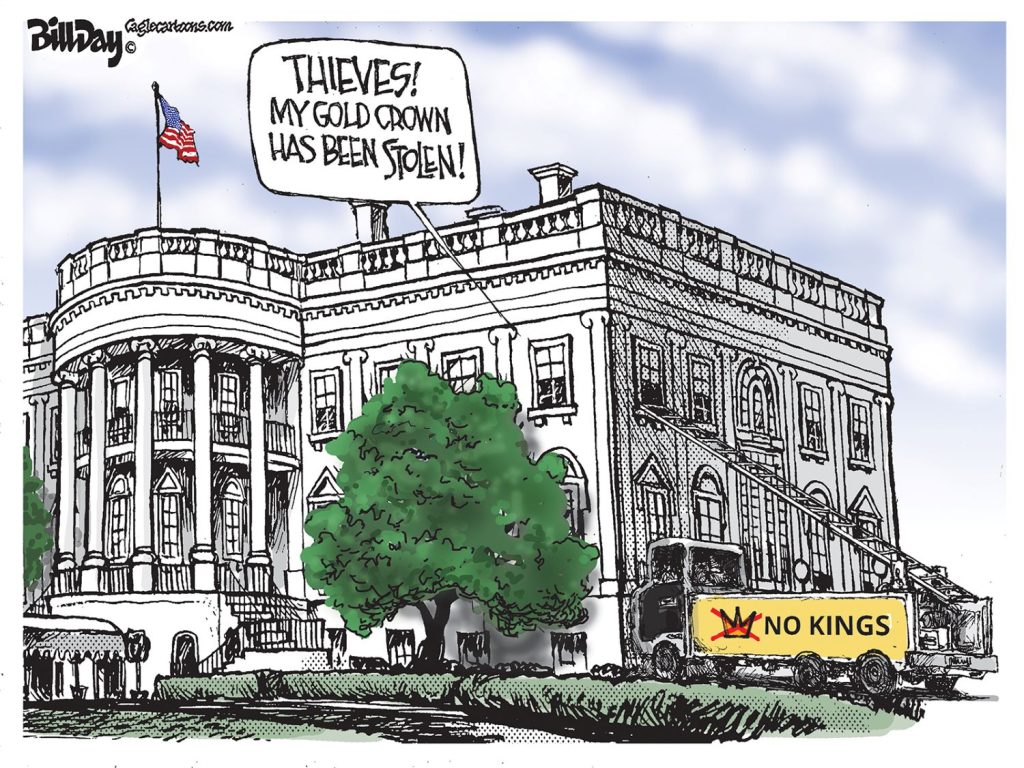At a time when our community is hungry for well-articulated economic development policies to inspire us, most comments only make us wince.
We were reminded of this again a few days ago when a Chamber official said Memphis is in “competitive warfare” with Southaven and West Memphis. It illustrated how mired we are in our economic thinking.
At a time when we should be worried about competing with cities in North America, we’re still obsessed with North Mississippi, and if that wasn’t bad enough, now we’ve added West Memphis. Perhaps, the fact that we are essentially selling the same products is why we continue to compete with the same old regional rivals rather than make the leap forward that is needed.
While the comment ignores the reality that our economy is regional in nature and is no respecter of city and county lines, it ignores even more that the jobs we’re in “warfare” over are generally low wage and low skill in nature. As for us, we’re willing for North Mississippi to bear more costs of the infrastructure for warehousing and distribution while similar projects here have their taxes waived, which in turn shifts the costs of their public services to ordinary taxpayers and small businesses.
The Wrong Talk
Meanwhile, our economic development commentaries are about priorities that are largely old wine in new jugs. It’s not that our vocabulary isn’t expanded with talk about talent, inclusivity, and equity, but by and large, our behaviors remain the same.
We talk about North Mississippi when the percentage of college-educated people determines roughly 60% of a city’s economic success. We have programs at Leadership Memphis and New Memphis Institute that address the talent issue, but as a priority, it lies largely outside of economic development circles, and because of it, we lack the kind of concerted, well-funded plan to increase our percentage of college graduates. The emphasis on increased associates’ degrees and certifications is important, but it isn’t counterbalanced with a focus on increasing bachelor’s degrees, master’s degrees, and doctorates that matter most in expanding our economy.
We talk about North Mississippi at a time when our academic programs need to be fully integrated into economic development and there remains a sense of fragmentation as the University of Memphis lacks for the level of funding to allow it to more aggressively go after Carnegie I Research designation and to deliver on the ambitions of UMRF Research Park.
We talk about North Mississippi at the same time that our share of creative workers declined. Between 2005 and 2017, the Memphis metro went from 47th to 48th among the 50 largest MSAs for its share of creative workers.
An Equity Economy
We talk about North Mississippi when the #1 economic opportunity is to close the racial income gap – which would produce $22 billion in new GDP for the Memphis MSA.
We talk about North Mississippi at a time we need to turn all the talk about equity into a real plan to deal with institutional racism, structural hurdles, and privilege. Part of it is that we act as if equity and equality are the same things. But here’s the biggest problem: other cities are addressing these issues and its companies are acting on research that shows that racial economic exclusion is a market failure and that diversity is pivotal to cities’ global competitive advantage.
What it comes down to is that when we get to the basics of our economic development policies, it lacks a disruptive strategy, a fact made even more surprising in a region known for disruptive innovation – think FedEx and AutoZone.
If our community doesn’t find value in racial equity, it will miss out on one of the biggest opportunities for innovation and growth. After all, in a world becoming increasingly diverse, the Memphis region was diverse long before it was cool, and we are only a few years away from being the only metro region with more than one million people that is majority African American.
Getting The Right Focus
For companies, a focus on racial equity is crucial if it they are to innovate, to create products and services for a more diverse customer base, and to build a better workforce. Cities are no different. If there is any place that should pioneer racial equity as a source of competitive advantage, it should be ours.
As long as average white incomes are twice African American incomes – a fact that has remained the same for the past 50 years despite skyrocketing increases in educational achievement by African Americans – and we are content for this to be a fact of life here, we have relegated our economy to be more of the same and for our envy of other cities to grow.
We have to change and to do that, we have to shed our obsession with North Mississippi and aim higher than winning battles for distribution facilities that do nothing to increase our per capita incomes and that become a barrier in attracting the kinds of knowledge economy workers that will dominate the coming decades.
This is hard, long-term work, and it requires systems thinking, innovation disruption, and blending short-term strategies with long-term goals.
Moving Up The Ladder
It begins by understanding that company gains are not the same as worker gains. It begins by understanding that every job is not a good job. It begins by understanding that our ultimate success is not judged by how many competitions we win against North Mississippi – and West Memphis.
It calls on us to embrace broader versions of economic development, to focus on how to achieve deep prosperity for more people, and to build long-term strategies on the issues that will in fact determine which cities succeed and which ones remain on the bottom rungs of key economic indicators.
As has been said, today’s economy requires leadership and innovative problem-solving. Those who adapt and innovate will be at the vanguard of metropolitan regions generating deep prosperity; those who fail to make the shift risk their communities falling behind.
The consequences of the Memphis region being among the fall behind communities are clearer and clearer and should provoke a palpable sense of urgency.
***
Join us at the Smart City Memphis Facebook page for daily articles, reports, and commentaries that are relevant to Memphis.







A really good article. I have been surprised and dismayed over the years that developers do not recognize that north Mississippi and eastern Arkansas are all part of the same regional economy. Part of our poverty problem is that the most of the counties in our MSA are very rural and very poor also. The good news is that there is a lot of discussion about the issue today.
However, I am guessing that the opportunity to build a progressive economy on STEM type occupations has passed us by. Our specialty has always been ‘barter and trade’ — somehow we have to build a good, decent paying economy on that base.
Memphis recognizing N. Mississippi and West Memphis as our chief rival competition is like the U of M saying the Arkansas State Red Wolves in Jonesboro AR. Is our big rival. That is the type of thing that happens when you are not measuring yourself against real competition. You fall behind. This was recently further enabled by the U of M when they abandoned their peer city review platform. Basic fundamentals are missing from the economic development conversation like who are our REAL competitors in a global economy? And what’s is economic development ? And how do you measure economic development ? The notion of N. Mississippi and West Memphis as our chief rival keeps Memphis in a bubble where real estate development is economic development as evidenced by the touting of $19B in Potential development. The FedEx /Memphis Tomorrow complex furthers the community living in a bubble and competing against ourselves within a complex that bullies it’s own people and taxpayers with excessive corporate/real estate incentives for the benefit of the small few.
James, I tend to agree with most of what you are saying. Having worked in the space don’t get distracted with words buzz words like STEM. It’s really just an acronym that promotes largely what you are talking about in stronger foundational education to support jobs of the future. STEM provides a content platform for educators to talk about the jobs of the future while connecting the educational system with employer demand today. Elements of STEM are being carried out for example by the Greater Memphis Medical Device Consortium that expose students to STEM careers in the medical device community. Stronger foundational education can be forwarded by the system embracing ACT WorkKeys which links foundation skill requirements to the workplace in reading, applied math and interpreting graphical information and with relevant career planning.
Further, the County Commission just funded a promising program in Junior Achievement that stresses community involvement and relevant financial literacy, work readiness and entrepreneurial education. This comes after the education/workforce development system was botched from the top of the Memphis ecosystem for 4 years.
As far as the U of M, they have been a disappointment for me. They have the capacity to promote balanced investments and economic development work while supplementing that with their poverty research. But they have botched that while abandoning their peer city research platform at their very own The Memphis Economy project. They did this while not advocating for their Amazon Road Map publication while chasing down local government funding for a state funded institution under a their new FedEx/Memphis Tomorrow Board of Trustees. Also their investigative journalism project has been a flop and not questioned local power centers. But the U of M does produce a good public university product overall with improving athletic results. And CBU and Rhodes produce a high quality product. I see a good higher ed product here in Memphis. But institutionally the U of M cannot be trusted as balancing force in the work of economic development under the same FedEx/Memphis Tomorrow Board complex that has in effect resulted in the normalization of community decline irritated by excessive corporate welfare environment that has gone on for 10 years now if not more.
All of that to say, foundational workforce development by far is the community’s number #1 problem based on the data. So I agree with you for the most part.